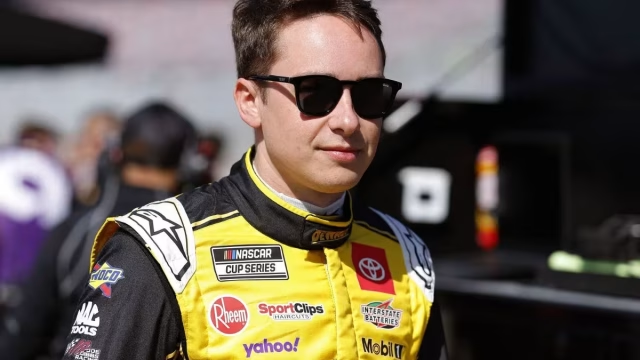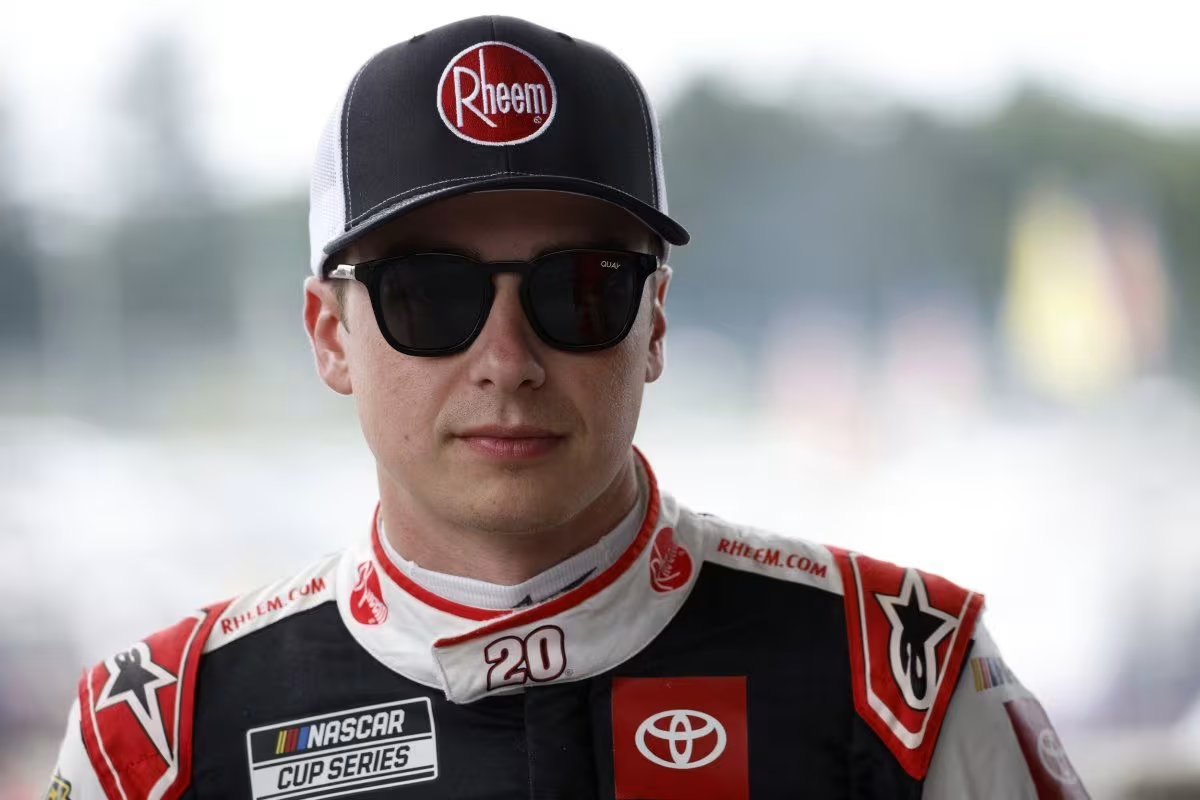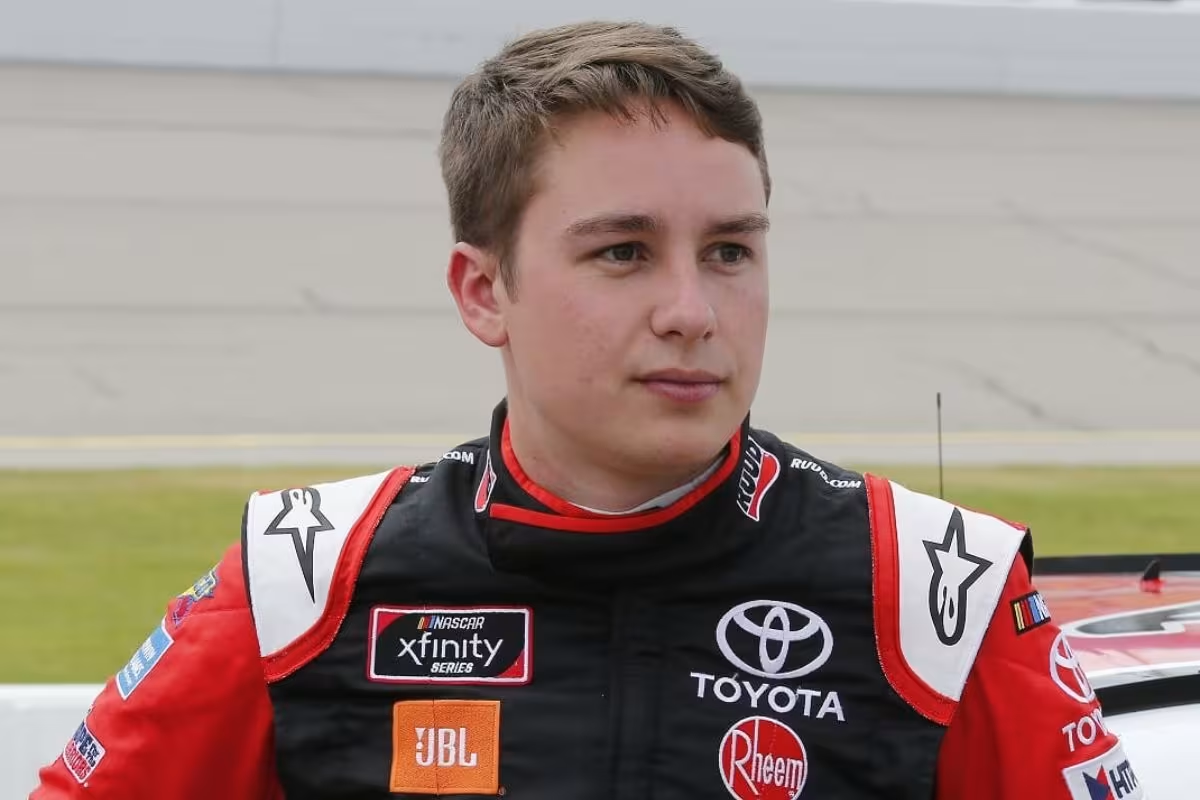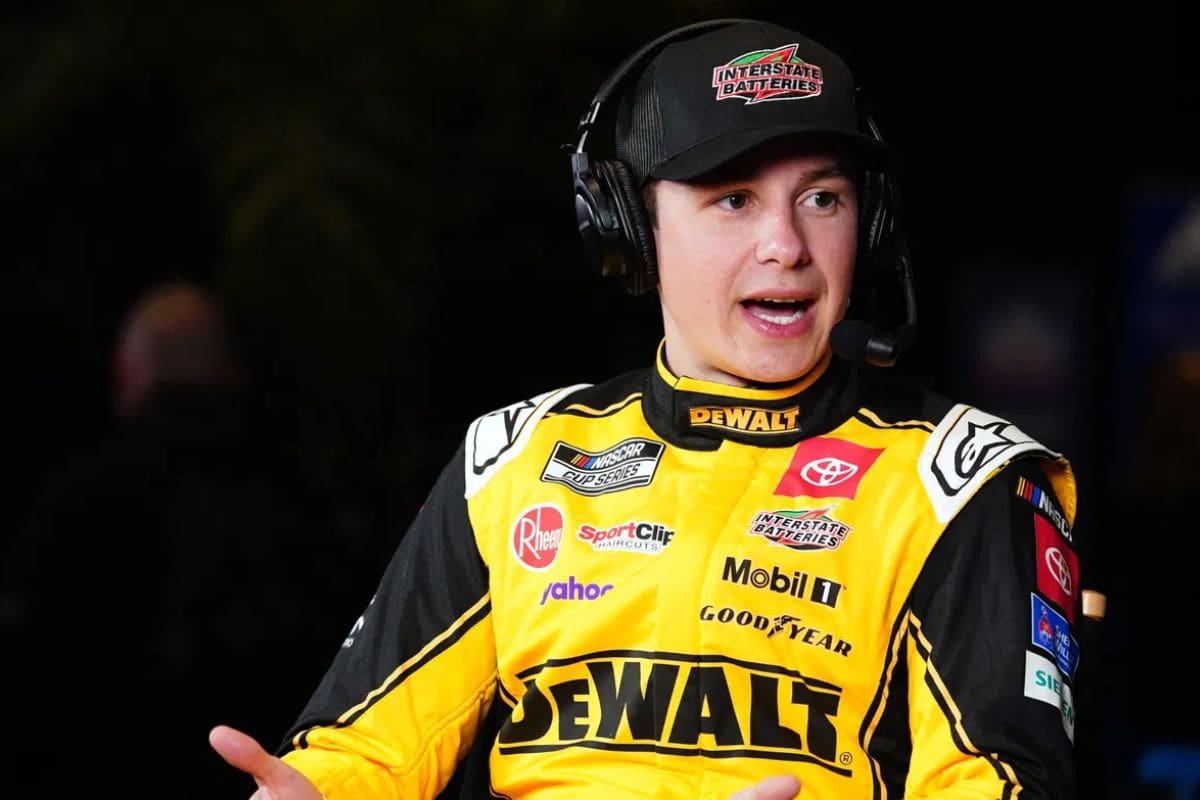NASCAR Fans Roast Bristol Race: Christopher Bell‘s recent criticism of NASCAR fans highlights a growing tension between driver expectations and spectator experiences, particularly following the Bristol race that many deemed lackluster. Bell contends that the complexities of racing—rooted in strategy and skill—are often overlooked by fans seeking constant excitement. This discord raises significant questions about what constitutes a “good” race and whether the subjective nature of racing entertainment is being adequately considered. As Bell’s comments resonate within the NASCAR community, one must ponder how this divide might influence future events and fan engagement.
Key Highlights
- Christopher Bell expressed disbelief at fans’ negative reactions to the Bristol race, emphasizing his exhilaration during the event.
- He highlighted the disconnect between drivers’ strategic experiences and fans’ expectations for dramatic racing moments.
- Bell noted that historical races without tire wear were still well-received, challenging the fairness of current fan criticism.
- Other drivers, including Larson and Elliott, supported Bell, acknowledging the race didn’t meet excitement standards.
- Bell’s comments stress the importance of understanding differing perspectives between drivers and fans in appreciating NASCAR.
Bristol Race Overview and Fan Disappointment
Typically, NASCAR fans approach the Bristol Motor Speedway race with high expectations, enthusiastic for the thrilling drama that the venue is known to deliver. However, the recent race did not meet these anticipations. Rather than the expected excitement, spectators were met with a lackluster performance characterized by minimal tire degradation and only eight lead changes throughout the event. This striking contrast to the dynamic racing typically associated with Bristol left many fans feeling disillusioned and frustrated.
The absence of tactical diversity further compounded the disappointment. Fans anticipated the rollercoaster of tactics that often defines short-track racing, yet the race unfolded without notable strategy shuffles, leading to a more predictable outcome. The emotional investment from both drivers and fans hinged on the expectation of a race filled with unpredictability and thrilling overtakes, which ultimately fell flat.
As tensions rose in the stands, the palpable disappointment manifested in vocal criticism from the audience. Many voiced their dissatisfaction, reflecting a collective yearning for the high-stakes drama that Bristol has historically offered.
The race also highlighted the challenge NASCAR faces in consistently delivering excitement at each venue. With the sport’s reputation riding on such events, the Bristol race serves as a reminder that fan engagement is not solely about the spectacle but also about the intricacies of racing strategy and competition.
Christopher Bell’s Perspective on the Race
The striking contrast between fan expectations and the reality of the recent Bristol race was further highlighted by Christopher Bell‘s perspective on the event. As a driver for Joe Gibbs Racing team, Bell offered a unique insight into the complexities of the race that fans may not fully appreciate.
While many spectators expressed disappointment over the lack of competitive tire strategies and overtaking maneuvers, Bell emphasized the skill and strategy involved in maneuvering the track under intense pressure.
Despite finishing behind Kyle Larson, who led an impressive 462 of the 500 laps, Bell articulated a sense of admiration for Larson’s dominance. His perspective showcases the nuanced understanding drivers possess regarding race dynamics, which can often be lost on the viewing public.
The glaring disparity in opinions was evident when just 27.2% of fans gave a positive response in Jeff Gluck’s ‘Good Race Poll,’ highlighting the disconnect between the audience’s expectations and the reality of competitive racing.
Bell’s appreciation for the race highlights the multifaceted nature of motorsport, where the nuances of tire management and racecraft may not resonate with fans seeking continuous action.
His defense of the event, alongside criticism of the prevailing public sentiment, serves as a reminder that racing is as much about strategy and endurance as it is about spectacle.
Christopher Bell’s Response to Fan Criticism
While fan feedback is an integral part of any sport, Christopher Bell’s recent engagement with criticism highlights a fundamental disconnect between driver experiences and spectator expectations.
Bell articulated his frustration with the overwhelming disapproval expressed by fans on social media. He referenced historical races, noting that moments of tire wear have been rare, yet previous events devoid of such drama were still well-received. This observation suggests that the criteria by which fans evaluate races may not align with the realities faced by drivers on the track.
“There’s only one race where we had tire wear in the last 10 or 11 years that I’ve been going there.” – bell
Bell’s candid admission of his enjoyment during the Bass Pro Shops Night Race emphasizes the subjective nature of racing experiences. From the driver’s perspective, the race felt exhilarating and competitive, prompting him to express disbelief upon learning of the negative fan reactions.
He stated, “I was laughing. Because literally from my seat in the race car, I felt like it was an amazing race.” This highlights the divergent viewpoints between those who participate in the sport and those who spectate.
“And I had no idea that everyone hated it until a couple of hours after that interview. Yeah, I mean, I go back to the start of stage 3…I literally watched guys run around there three-wide. And I was mindblown whenever people said it was a terrible race…Because from my seat, I thought it was a great race.”
“I mean, it just goes back to what the definition of a good race is…How the race car drivers and fans are never going to agree on what a good race is. And the drivers are always gonna push for something different that is good from our seats. And then the fans are gonna push for something that’s not good from our seats.” – bell
Drivers vs. Fans on Defining a Good Race
This fundamental difference can be broken down into three key aspects:
- Performance Metrics: Drivers prioritize metrics such as lap times, pit strategies, and car handling, which often go unnoticed by the casual observer.
- Entertainment Value: Fans are drawn to dramatic moments, lead changes, and on-track battles, often valuing excitement over technical skill.
- Emotional Connection: While drivers may feel satisfaction from executing a perfect race strategy, fans derive joy from the comprehensive experience, including the atmosphere and narratives that unfold during the event.
Other Drivers’ Support and NASCAR’s Next Steps
Although drivers like Kyle Larson and Chase Elliott have expressed solidarity with Christopher Bell regarding the recent criticisms of NASCAR races, the broader implications for the sport cannot be overlooked. The sentiments shared by these drivers reflect a deeper consensus within the garage that the recent Bristol race did not meet the expected standards. Larson’s comments highlight the inherent challenges of the Bristol track, where passing is notoriously difficult, while Elliott’s assessment suggests a stagnation in the race’s excitement over the past nine seasons.
“I think Bristol’s Bristol. It’s always fast-paced, really hard to pass. Even guys that have good cars and get stuck [in the back] know it.” – Larson
“From my perspective, it wasn’t any different than the last however many Bristol races I’ve run except the spring; that was the one that was different. Outside of that, I thought it was just like the other [races] that we’ve had there the past nine seasons for me.” – Elliott
The support from these renowned drivers may mitigate some of the backlash faced by NASCAR; however, the considerable disinterest among fans raises critical questions about the future of the sport. If the racing product continues to be perceived as lacking, NASCAR must proactively seek solutions to improve the viewer experience and rekindle fan engagement.
NASCAR’s next steps should include thorough analysis and feedback gathering from both drivers and fans. By fostering a collaborative environment where insights from all stakeholders are valued, the organization can develop strategies that not only honor the tradition of tracks like Bristol but also invigorate the racing product.
News in Brief: NASCAR Fans Roast Bristol Race
The criticism directed at the Bristol race emphasizes a fundamental disconnect between driver experiences and fan expectations. While spectators often seek overtly dramatic races, the nuances of strategy and skill are vital components that may not be readily appreciated. Christopher Bell’s defense demonstrates the complexities inherent in racing, suggesting that a broader understanding of the sport is necessary for a more nuanced appreciation among fans. This dialogue may ultimately inform future NASCAR events and improve viewer engagement.
ALSO READ: Christopher Bell’s Top 5 Finish at Bristol: How Kyle Larson Overpowered NASCAR Drivers



